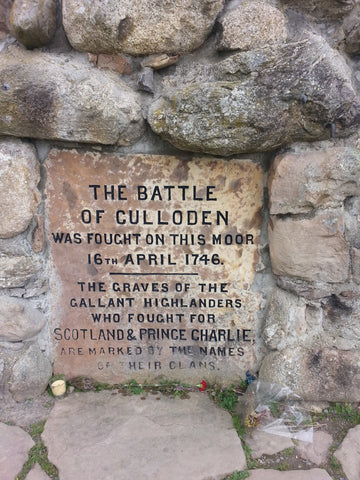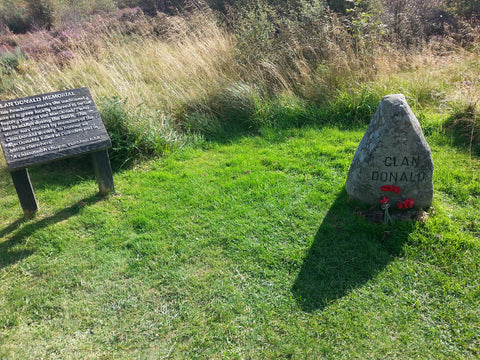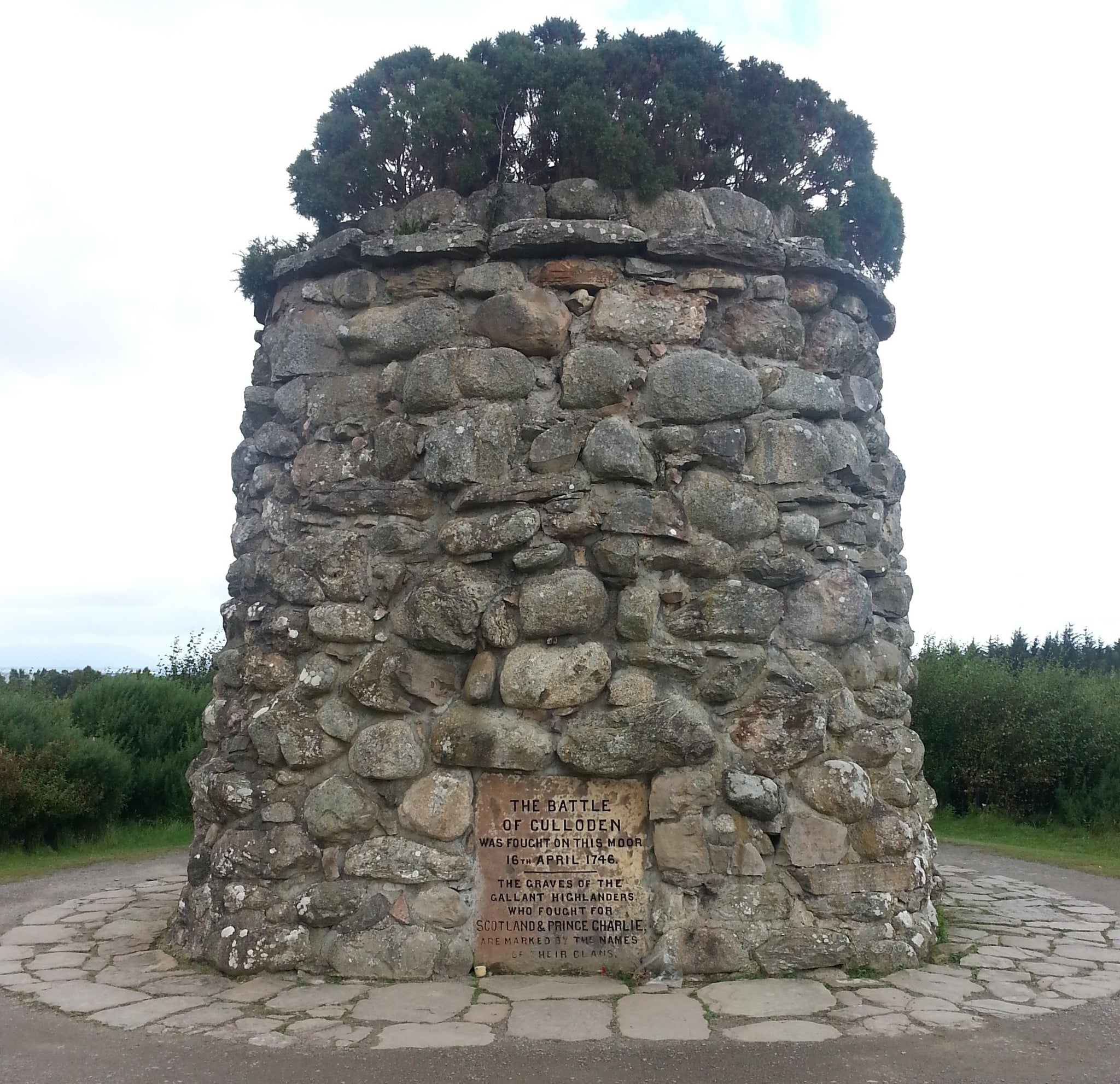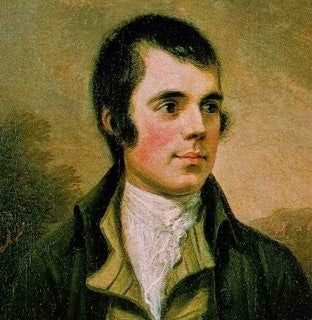
The photo above shows the 20 foot tall Culloden memorial cairn erected by Duncan Forbes in 1881.
The Battle of Culloden took place on 16 April 1746, resulting in the British Army's destruction of the 1745 Scottish Jacobite rising; its aftermath changed Scotland forever.
The Rising was led by Charles Edward Stuart (Bonnie Prince Charlie) on behalf of his father James Stuart, exiled claimant to the British throne. After landing in Scotland in July 1745, he raised an army of Scottish Jacobite supporters and had some initial success, including winning the Battle of Prestonpans against the British in September. An invasion of England starting in November was abandoned after expectations of thousands of English recruits and of a French landing in support did not eventuate; by February 1746 the Jacobites had moved to Inverness and the Duke of Cumberland, with 12.000 British troops, had reached Aberdeen.
The armies finally met on 16 April. On the night of April 15-16, Charles' forces had unsuccessfully attempted a surprise night attack on Cumberland's camp near Nairn. Many of them were exhausted after the hard night march; in addition, they were relatively poorly armed, outnumbered, and the battleground was too marshy to allow the Highlanders’ favourite tactic - a headlong charge into enemy ranks. With superior numbers, artillery and cavalry, the British decimated the Clans on the field. It was the last pitched battle on British soil and, in less than an hour, around 1,600 men were slain – 1,500 of them Jacobites. British Government retribution followed, aimed at assimilating Scotland and crushing the Clan system - including the Act of Proscription which prohibited Highlanders from owning and carrying arms, and banned the wearing of tartan.
Charles fled with a group of supporters, hunted by government forces and relying on aid from sympathetic Highlanders. He was helped by Flora MacDonald to reach the Isle of Skye disguised as her maid and finally left Scotland in September aboard the French frigate L'Heureux; he never returned.
The above is a very brief account of events, there is no shortage of additional detail; one excellent source is the 1964 docudrama "Culloden". Written and directed by Peter Watkins for the BBC in a quasi-newsreel style with nonprofessional actors, it is a highly detailed and authentic reconstruction. View it at https://www.youtube.com/watch?v=fyuOaQHO5h0&t=153s
Last year we joined the thousands who visit Culloden every year, walking the battlefield and viewing sites such as the Memorial Cairn and the headstones marking the mass Clan graves. It was a sombre and moving experience, but gave insight into this important slice of Scotland's history.












